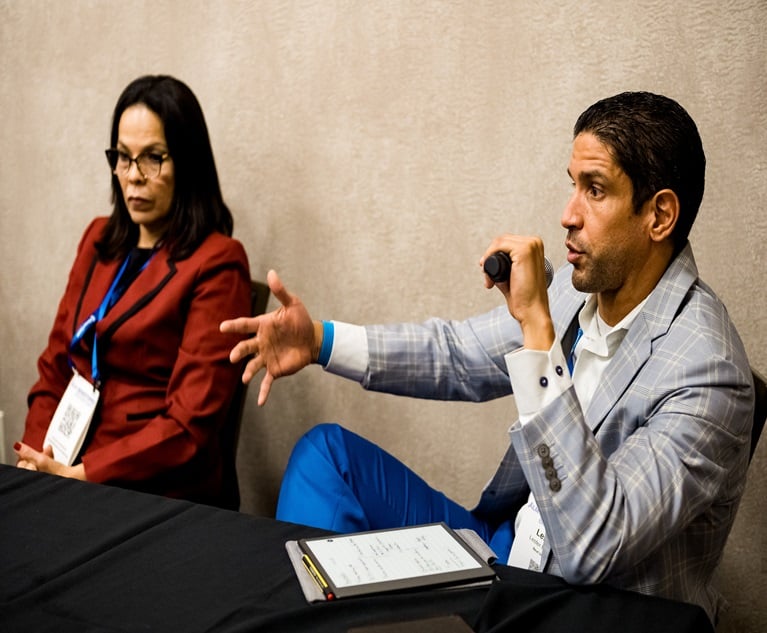Knowing how to engage folks to get them chatting, knowing whento shut up and listen, memorizing proven comebacks to trounceblow-offs.
|Tacks like these can't turn dreaded cold calling into, well, the most funever; but they can turn dialing for dollars into winningmore clients. (That is fun!)
|Related: 7 cold calling tips to improve you closingrate
|In an interview, Mike Brooks, founder of Mr. InsideSales and a former 12-year financial advisor (FA), discloses anumber of his time-tested cold calling strategies and explains howadvisors can overcome stumbling blocks to gaining trust that arepart and parcel of cold calling.
|Best practice techniques
An authority on phone selling and an expert phone script writer,consultant-trainer Brooks — whose motto is “Sales SolveEverything” — has a roster of financial services clients thatinclude Raymond James and Charles Schwab. His newest book,“Power Phone Scripts: 500 Word-for-WordQuestions, Phrases and Conversations to Open and Close More Sales”(Wiley – July 2017), is packed with best practice techniques thatthe author, who has sold via phone for more than 30 years, hasdeveloped.
|In the interview, Brooks explains that scripted cold calls arethe only way to go. Why? Because prospects raise the same objections again andagain. Therefore, FAs need prepared responses to quickly quashresistance and qualify prospects, all the while, creatingrapport.
|Mr. Inside Sales' success story is dramatic: As a cold callingrep at a pioneering California discount brokerage in the 1980s,Brooks was a bottom 80% producer, ad-libbing his way through callsand feeling frustrated. Eventually, he realized that using astructured script was the route to becoming a king closer.
|Related: Are you a cold calling failure?
|
He worked up a customized script and in 90 days became the No. 1rep in his office of 25. Nine months later, he was No. 1 out offive branch offices. The following year, he was tapped as salesmanager and by Christmas, had taught all the brokers to use hisbest practice scripted technique. He then went on to become salesvice president at two other independent broker-dealers.
|(Mike Brooks pictured at right)
|I recently interviewed Brooks, on the phone from Mr. InsideSales' North Carolina headquarters. This past April, the AmericanAssociation of Inside Sales Professionals honored him with its 2017service provider award for training and development. Here arehighlights of our conversation:
|Q: When someone answers the phone, is it cool to ask,“Is this a good time for you?”
|Mike Brooks: That's bad because you'reimmediately giving the prospect a way out. They're almost going togo, “Oh, yes, it is a bad time, and tomorrow will be bad,and the Twelfth of Never will be bad.” If it's a bad time, they'lltell you. Don't lead with your chin and give them a way out.Instead, engage with them. Be personable, build some rapport. Askqualifying questions. Be prepared.
|Q: What if it really is a bad time, and the prospect'sin a hurry or annoyed?
|You need to listen to the mood and react accordingly — notsteamroll over them. Give them space. That's the fastest way tobuild trust because it's an environment where you're not assaultingthem with a sales pitch.
|Related: The No. 1 reason most people buy insurance fromyou
|Q: Suppose they say, “I'm not interested”?
|Be prepared in advance with a script and an approach that works.Personalize it, internalize it, memorize it. Say: “No problem atall. I'm not trying to sell you anything.” And put a little gigglein your voice. “I just have a quick question: How active have youbeen in the stock market in the last six months?” or “On a scale ofone to 10, what's your knowledge of managed accounts?”
|Q: What if they try to dismiss you with, “I have afinancial advisor”?
|Say: “That's excellent. I'm glad you do. In fact, that's exactlywhy I called you. I only like to work with people who are prettysavvy about the market.”
||Q: Why would that approach work?
|Because you're diffusing the objection. You've kind ofsidestepped it. You haven't pushed on that person. Instead, you'velet the objection flow over you while you're working around it. Youaren't going to meet them head-on because if you push on someone,they're going to push back instinctively.
|Related: 10 of the most common phone selling mistakes (andwhat to do instead)
|Q: At what point do you try to get a prospect to starttalking?
|One of the mistakes many advisors make is that they're notengaging quickly enough and allowing the prospect to speak. Whathappens is that their guard goes up, and they want to repel therep. You have to ask a question quickly to see the level ofinterest and to qualify them.
|Q: What's the best way to generate trust during a coldcall?
|The tenet I adhere to is that the reason top producers are sosuccessful is that they recognize the golden rule of sales: 80% ofthe objections are the same. They recur over and over. The advisorshould think, “I already know what the pushback and resistancestatements will be, so I'd better doggone be prepared for them andnot be thrown off my game.
|Q: What's the second most important thing to promotetrust in a cold call?
|Listening. You don't want to go, “Me, Me, Me. We, We, We. Wespecialize in [such and such].” A prospect [early on] doesn't careabout your specialty. It's “I want you to care about me.” You buildrapport by having a prepared opening; and as you talk, you listenfor receptiveness. Ask questions to see if your specialty is even afit and if it is, then you might see how you can weave it into theconversation to add value.
|Q: You write about one word that can boost sales. Thatword is…
|“Today”: “I recommend that we go ahead and set an appointmenttoday.” Or, if you've met with someone and you're calling to close,say: “Let's get you started and signed up today.”
|Related: Insurance offices risk losing business by makingcallers wait on hold
|Q: What if the prospect says, “I'll have to speak withmy wife (or husband)”?
|You're going to identify the decision-makers in advance so thatyou're not ambushed by that objection. If anybody gets that at theend of their close, they haven't properly qualified. So at thestart, you ask: “Besides yourself, who else would weigh in on thesedecisions?” If they say their spouse, say: “Terrific. When we gettogether, I'd love for [her/him] to be present so I can answertheir questions.”
|Q: Any other way of overcoming, “I need to speak to myhusband/wife”?
|Isolate the objection because most of the time it's a smokescreen hiding another objection. You simply say, “I totallyunderstand.” That's a softening statement. Then: “If you speak toyour partner and they tell you to do whatever you think [is best],where would you be leaning, based on your understanding of whatwe've talked about?”
|Q: What else in dealing with the I-have-to-speak-to-mypartner objection?
|You could say, “Terrific idea. Why don't you get [him/her] onthe line. I'd be happy to answer any of their questions.”Twenty-five percent or 30% of the time, they'll say, “Hang on. Letme see if they're available.”
||Q: You write that there are three times to handle anobjection. What are they?
|One is right at the beginning because you can anticipate it. Forexample, you're talking about a managed fund and you know that anobjection will be that the fees seem too high. So you can say[proactively]: “We've gotten these for other clients, and some ofthem think the fees are very high. I want to address that before wego on.”
|Related: Calling tips for insurance agencies andbrokers
|Q: When are the two other times?
|In the middle of the conversation, you can say, “I'm really gladyou brought that up about managed funds. Let's talk about it.” Oryou can handle it at the end by saying, “That's a very good point.I'm going to show you some other data. So hold onto that thought.I'll handle it as we keep going.”
|Q: Must you always address prospects'resistance?
|No. Sometimes you don't have to handle it at all. Say, “That's areally good point. Let me give you some other data, and I'll circleback around.” Then keep moving on, and don't bring it up again.Chances are about 50% of the time they won't mention it againeither.
|Q: What if the prospect says, “I'm busy. Send me anemail”?
|Say, “I'd be more than happy to,” and capture their address.Then ask, “I have two different brochures that I can send. One ispretty extensive, and one is shorter. Let me ask a quick questionto determine which would be best for you.” Then ask a qualifyingquestion.
|Q: If you leave a phone message, what should itsay?
|[As for me,] I don't like leaving messages. I prefer callinguntil I reach someone. But you could say, “This is [name] callingfrom [firm]. I just have a quick question for you. My number is [soand so], and say it very slowly. Then repeat the whole message.
|Related: 8 must-have qualities for achieving salessuccess
|Q: Most folks have Caller ID, which means they oftenwon't pick up the phone. How to get around that?
|Many financial advisors are calling on cell phones, where theycan block their phone number. The other option is using a servicethat can change your phone number. But if someone doesn't want totake a call from [say] Charles Schwab, then they pretty muchdisqualify themselves because what are the chances they're going tomeet with you?
|Q: How long did you flounder before you realized whatyou needed in order to be a successful cold caller?
|I got into telemarketing investments in 1984 and sucked forabout a year and a half. Then I opened a nightclub and came back toinvestments about a year later. I still sucked and struggled foralmost two more years. I was making about 150 cold calls a day andgetting the same objections over and over.
|Q: What did you do to turn things around?
|Made a commitment to learning the craft of sales. I had to learnthat 80% of the responses are going to be the same; so I'd bettercome up with a best practice approach of handling them. That meantI needed to script them.
|Related: 11 ways for insurance agents & brokers to winnew business
|Q: How did you know what to write?
|I went to the top producers in my branch and recorded everythingthey were saying, typed it out at night, put it all in my own wordsand developed personalized scripts. Every night I'd record myself,listen to the tapes and revise what wasn't working. I found thebest practice that fit my personality, memorized the script andused it over and over.
||Q: You say that FAs need to build rapport before, duringand after the phone call. Why after?
|Once the call is over, you have to continue rapport-building.That means sending an email saying, “[Prospect's name], it waslovely to speak to you. Thanks for taking the time. I'm enclosingthe information we spoke about. I'm looking forward to meeting yourwife [or husband]. Thank you very much.” After any interaction, byphone or in person, you have to continue to be in touch and buildthat relationship.
|Related: 8 great opening lines for insuranceproducers
|Q: What else do you do along those lines?
|When I meet with prospects, I take a photo of them and me. I putit on the front of a greeting card, which I get from SendOutCards,with a message inside saying: “Great to meet you [etc.]” and mailit to them.
|Q: What about prospects who don't sign up withyou?
|If someone says they're interested in my training but don't hireme, I use a follow-up campaign over the course of a year to staytop-of-mind in a unique way: I send them nine customized cards,such as: “I know [whatever] isn't right for you now. But [things]change; and when they do, I hope you'll keep me in mind…”
|Q: What does your advice to cold callers, “Invest dailyin your attitude,” mean?
|If you're not feeding your mind three times a day by reading andlistening to positive thoughts and affirmations, your attitude willgo negative very quickly. Add to that, making 10 to 50 cold callsand getting turned down every single day. You need to continue toinvest in your skill set by reading books about asking betterquestions and closing better, and to remind yourself that if youstick with it and continue to keep positive and set goals, you'llaccomplish them and succeed. If you aren't doing all that, you'regoing to go negative and dark quickly.
|Q: What's your advice on how FAs can be organized andmore efficient?
|Set three priorities that are directly related to your incomebecause remember, the No.1 thing is: Sales solve everything. Ilearned a long time ago that if I made a list of three prioritiesthe night before and the next day worked through them untilcomplete — no multi-tasking — my productivity andeffectiveness catapulted.
|Q: What were your three priorities?
|No.1: I had to make 35 cold calls a day. No. 2: I had toabsolutely call my closers back. No. 3: I had to nurture myexisting clients.
|Q: Should financial advisors who have become quitesuccessful still cold call?
|It depends if they've reached their goal. If they're fat andhappy and very busy with their clients, then they could changetheir emphasis on cold calling to an emphasis on deepening therelationships they have and look for more referrals. That's stillcold calling — but it's a warmer type of prospecting.
|Related: Insurance lead generation trends, strategiesand tips for success
|Jane Wollman Rusoff is a NewYork-based freelance writer and was a contributing editor ofResearch magazine. She is the founder of Family Star Productions.Email her at [email protected]. Twitter: @jrusoff2.
Want to continue reading?
Become a Free PropertyCasualty360 Digital Reader
Your access to unlimited PropertyCasualty360 content isn’t changing.
Once you are an ALM digital member, you’ll receive:
- All PropertyCasualty360.com news coverage, best practices, and in-depth analysis.
- Educational webcasts, resources from industry leaders, and informative newsletters.
- Other award-winning websites including BenefitsPRO.com and ThinkAdvisor.com.
Already have an account? Sign In
© 2024 ALM Global, LLC, All Rights Reserved. Request academic re-use from www.copyright.com. All other uses, submit a request to [email protected]. For more information visit Asset & Logo Licensing.








